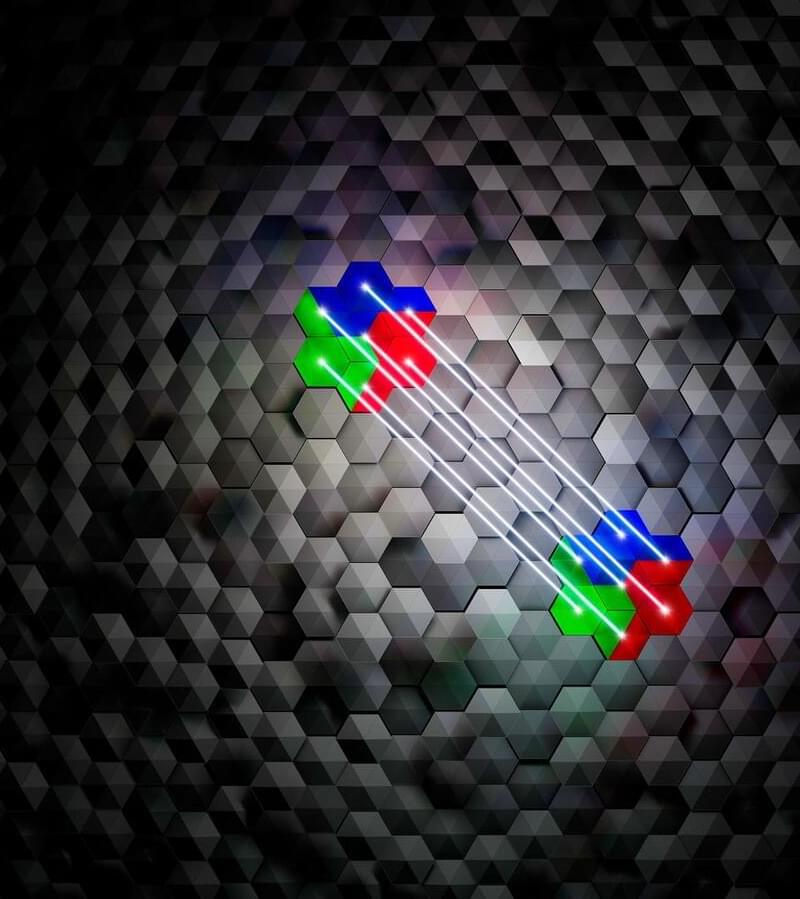In modern computers, errors during processing and storage of information have become a rarity due to high-quality fabrication. However, for critical applications, where even single errors can have serious effects, error correction mechanisms based on redundancy of the processed data are still used.
Quantum computers are inherently much more susceptible to disturbances and will thus probably always require error correction mechanisms, because otherwise errors will propagate uncontrolled in the system and information will be lost. Because the fundamental laws of quantum mechanics forbid copying quantum information, redundancy can be achieved by distributing logical quantum information into an entangled state of several physical systems, for example multiple individual atoms.
The team led by Thomas Monz of the Department of Experimental Physics at the University of Innsbruck and Markus Müller of RWTH Aachen University and Forschungszentrum Jülich in Germany has now succeeded for the first time in realizing a set of computational operations on two logical quantum bits that can be used to implement any possible operation. “For a real-world quantum computer, we need a universal set of gates with which we can program all algorithms,” explains Lukas Postler, an experimental physicist from Innsbruck.
